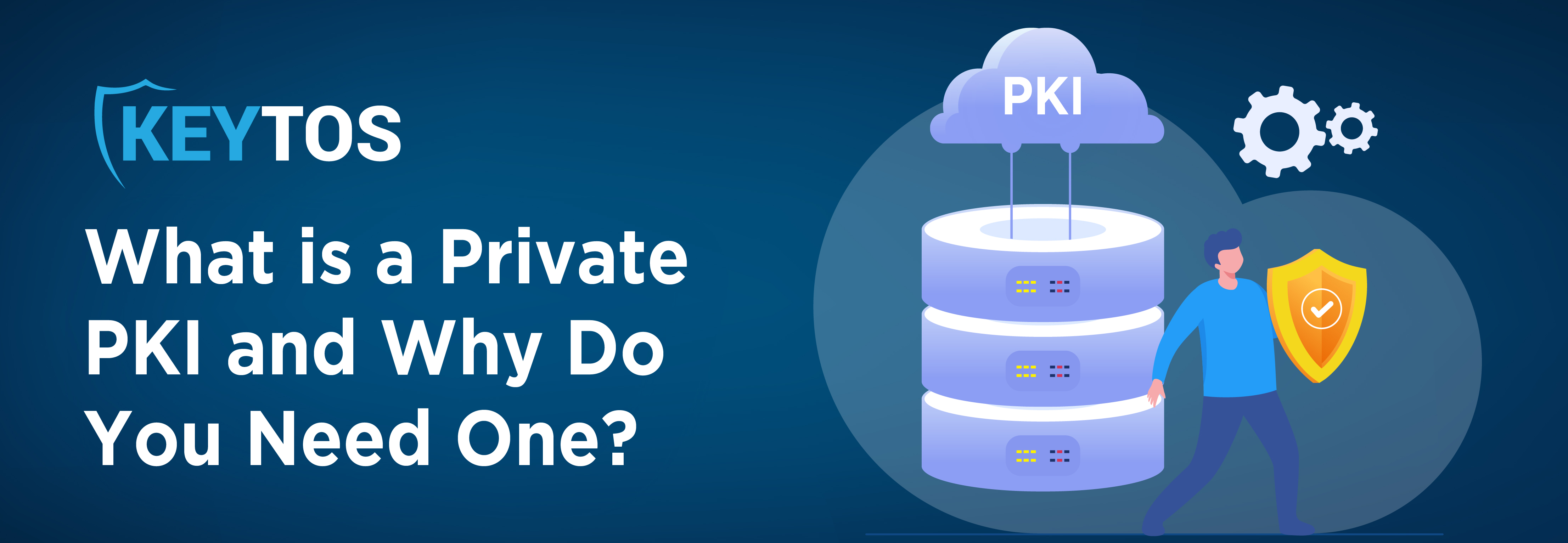
What is a Private PKI and Why Do You Need One?
Private PKI
Private PKI is basically an amalgamation of mechanisms using public key cryptography to verify the authenticity of users and devices. This infrastructure utilizes digital certificates, certificate authorities (CAs), and certificate revocation lists (CRLs) to remain operational. But not all PKIs are equal… This is where you’ll observe the differentiation and clear distinction between public PKIs and their private counterparts. This article will provide a quick outline the intricacies of a private PKI and let you know a little bit more as to why it might be good for your organization.
What is a Private PKI?
A Private PKI is owned and managed exclusively by a specific organization or an allied group of entities. This stands in contrast to a public PKI, which is open to all. The benefits of private PKIs over their public counterparts are pretty straightforward. Since it’s under the exclusive ownership and operation of a single entity, there’s tremendous flexibility. This means tailoring the PKI to suit the organization’s specific requirements becomes feasible, facilitating things like custom certificate policies, certificate practices statements, and the internal issuance, revocation, rotation, and administration of certificates.
In-House PKI: What to Consider
With in-house certificate management, the IT team is responsible for issuing, installing, inspecting, remediating and renewing certificates. But it can be tough when their day is interrupted by lost, compromised or expired certificates that require urgent attention. Managing the lifecycle of hundreds or thousands of client certificates is daunting, but not impossible.
Here are some questions you should ask yourself prior to undertaking an internal PKI initiative:
-
Do you have the requisite security policy creation and management expertise?
-
Can you guarantee the security and integrity of CA signing keys and the handling of user registrations?
-
Are you up-to-date on crypto standards, protocols and algorithms?
To be successful, an internal organization needs to build, maintain, update, and support EVERYTHING! Employees must be trained and certified to keep up with security compliance requirements. …starting to sound like a bit of a PITA, right? Relying solely on in-house PKI solutions can be overwhelmingly manual and challenging to maintain even for the savviest organizations.
Why Managed PKI is Popular
Simply put, managed PKI services bring the necessary infrastructure, automation, control and distribution of certificates and simplify and centralize management. You can also count on 3rd Party tools to follow PKI and SSL certificate management best practices. Here are some of the more helpful aspects of a managed PKI solution:
-
HSM Management: 3rd PKI tools often offer seamless integration with various HSM vendors, allowing organizations to leverage state-of-the-art security features without worrying about vendor lock-in or compatibility issues.
-
CRL Checking and Auto Healing: Certificate Revocation Lists (CRLs) are essential for maintaining the integrity of PKI. However, manually managing CRLs can be time-consuming and prone to errors. 3rd Party PKI tools often automate CRL checking and enable auto-healing capabilities, reducing the risk of revoked certificates going unnoticed and ensuring a more secure environment.
-
Certificate Management Tools: The management of certificates across an organization can become overwhelming, especially in large-scale environments. 3rd Party PKI tools simplify tasks such as certificate issuance, renewal, rotation, and revocation. This streamlining leads to increased efficiency and reduced chances of certificate-related outages.
-
ACME and SCEP Support: Third-party PKI tools often have built-in support for these protocols, enabling organizations to deploy certificates quickly and securely across various platforms and devices.
-
Move Away from Legacy Systems: Old systems tend to lack essential security features and updates, making them vulnerable to attacks. 3rd party solutions help facilitate the migration away from legacy systems by providing seamless integration with modern systems, ensuring security compliance and reducing exposure to potential threats.
Getting Started with Private PKI
Introducing EZCA, The only Azure-native Private PKI! Run and scale your own highly available private CA service without the upfront investment or ongoing maintenance costs associated with operating a private CA or private CA hierarchy. Whether you are creating a new private PKI hierarchy or chaining up to your existing Root CA, EZCA will help you create a secure and cloud-scale Azure based Certificate Authority that meets and exceeds industry standards.
One of the main reasons many Azure customers chose EZCA as their Azure Certificate Authority is because of our native integrations with Azure services, making it easy for you to create your PKIaaS in Azure and set it and forget it, EZCA will then take care of all the certificate management operations, from running a world class CA, to more tedious tasks such as keeping track of certificates and automatically rotating them.


